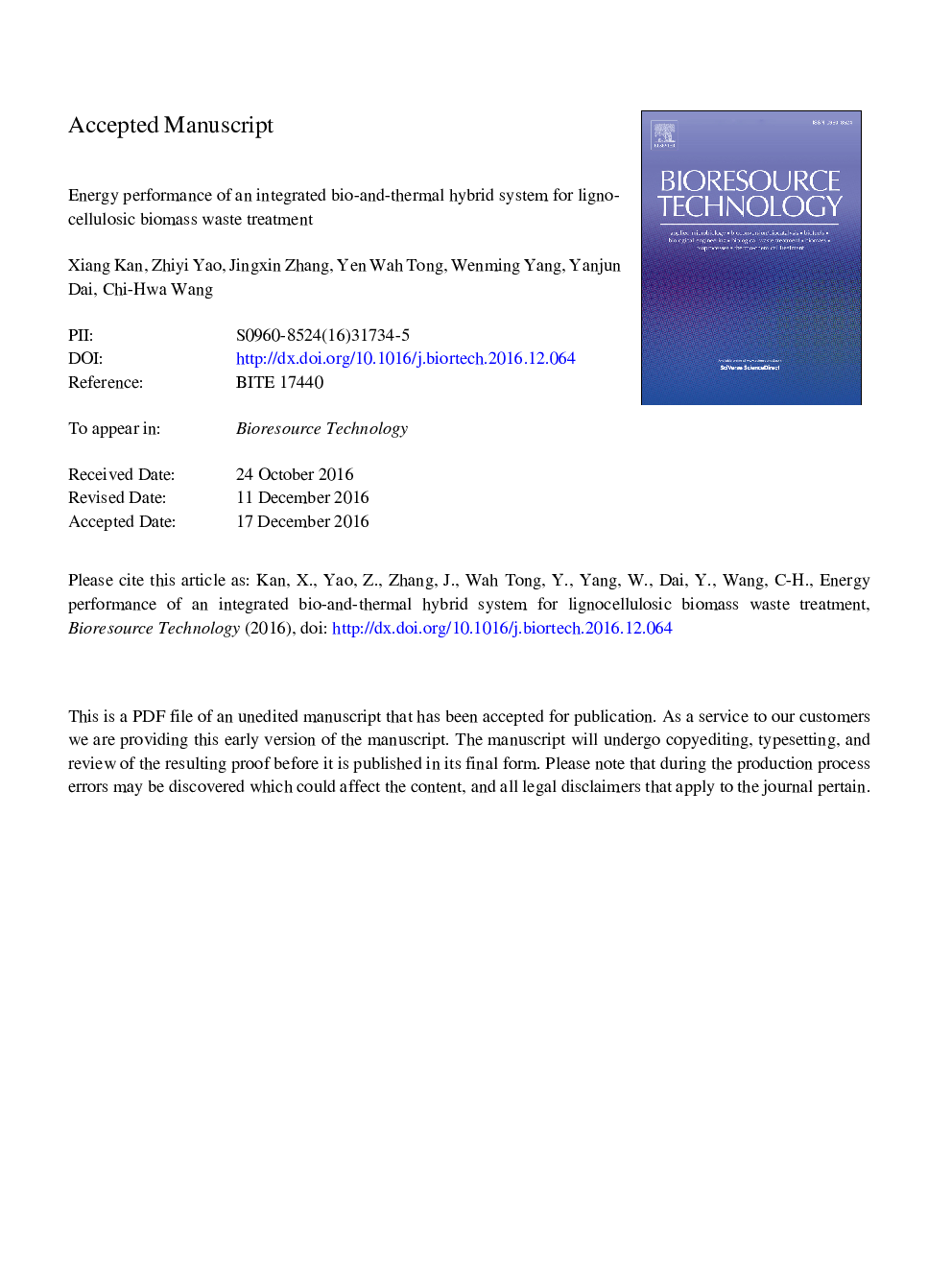| Article ID | Journal | Published Year | Pages | File Type |
|---|---|---|---|---|
| 4997726 | Bioresource Technology | 2017 | 36 Pages |
Abstract
Lignocellulosic biomass waste, a heterogeneous complex of biodegradables and non-biodegradables, accounts for large proportion of municipal solid waste. Due to limitation of single-stage treatment, a two-stage hybrid AD-gasification system was proposed in this work, in which AD acted as pre-treatment to convert biodegradables into biogas followed by gasification converting solid residue into syngas. Energy performance of single and two-stage systems treating 3 typical lignocellulosic wastes was studied using both experimental and numerical methods. In comparison with conventional single-stage gasification treatment, this hybrid system could significantly improve the quality of produced gas for all selected biomass wastes and show its potential in enhancing total gas energy production by a maximum value of 27% for brewer's spent grain treatment at an organic loading rate (OLR) of 3Â gVS/L/day. The maximum overall efficiency of the hybrid system for horticultural waste treatment was 75.2% at OLR of 11.3Â gVS/L/day, 5.5% higher than conventional single-stage system.
Keywords
Related Topics
Physical Sciences and Engineering
Chemical Engineering
Process Chemistry and Technology
Authors
Xiang Kan, Zhiyi Yao, Jingxin Zhang, Yen Wah Tong, Wenming Yang, Yanjun Dai, Chi-Hwa Wang,
